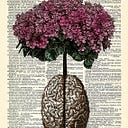Member-only story
Remarks on inadequacy
With continual reference to Lacan
For the most part, every unhappy and self-critical person is unhappy and self-critical in their own unique way. But what seems to unite every particular case of misery is some nagging and unrelenting feeling of lacking something, of being incomplete: in a word, of inadequacy.
This feeling invariably turns out to be an illusion. But it’s an illusion of the most stubborn type, because it persists even after we recognize it as such. Popular wisdom is quick to remind us that inadequacy is only a matter of perception, not reality — but that’s rarely enough to overcome it.
What intensifies this stubbornness is that in every case, inadequacy is understood as a pathological presence, as something to be ‘excised’ from the healthy personality. A person believes: If only it wasn’t for my feelings of inadequacy, I would be happy!
But this is a spectacular mental slight-of-hand. Understanding inadequacy as a defect amounts to a kind of redoubling that effectively makes overcoming it a logical impossibility.
The alternative is to view a sense of inadequacy not as a defect, but as a formative part of the human personality as such. This puts us to the task of integrating it into our personality, not excising it.
